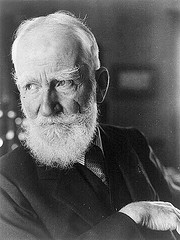Unfortunate marital grave inscriptions, collected by Susan Darling Safford in Quaint Epitaphs (1895):
Sacred to the memory of Anthony Drake,
Who died for peace and quietness sake.
His wife was constantly scolding and scoffing,
So he sought repose in a twelve dollar coffin.
Here lies my wife a sad slatterned shrew
If I said I regretted her I should lie too.
Within this grave do lie
Back to back my wife and I.
When the last trump the air shall fill,
If she gets up I’ll just lie still.
Here lies the body of Obadiah Wilkinson
And Ruth, his wife.
Their warfare is accomplished.
Here lies the body of Sarah Sexton
She was a wife that never vexed one.
But I can’t say as much for the one at the next stone.
And:
Here lies Jane Smith,
Wife of Thomas Smith, Marble Cutter.
This monument was erected by her husband as a tribute
to her memory and a specimen of his work.
Monuments of this same style are two hundred and fifty dollars.





